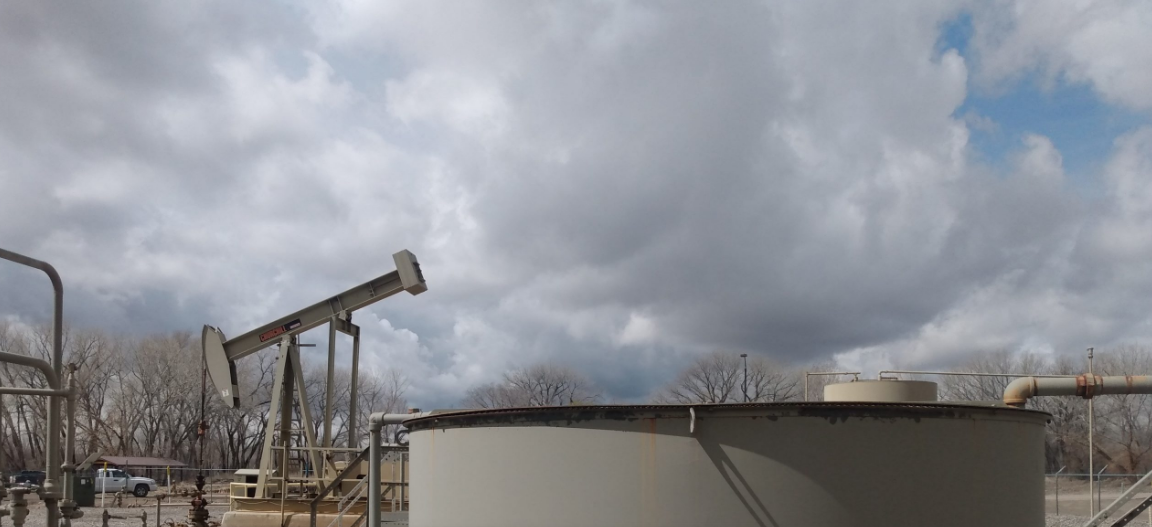
The Permian Basin is the most productive oil and gas play in the United States, making New Mexico polka-dotted with abandoned, unplugged oil and gas wells. These shut-down wells – nicknamed in the industry “zombie wells” – are potentially environmentally devastating, not to mention costly to plug, seal and reclaim, with an estimated cost of $20,000 – $145,000 per well.
By law, operators in New Mexico are tasked with plugging and sealing the wells once abandoned, as well as restoring sites to their original, natural condition. Unfortunately, operators sometimes go out of business without the means to fulfill these legal requirements. Consequently, wells are left unplugged, unsealed and leaking.
Abandoned wells have the risk of being environmentally problematic. They can contaminate water supplies and leech chemicals underground. Frequently, these zombie wells leak natural gas.
The New Mexico State Land Office sees the problem of zombie wells as a major issue. In November of 2020, the agency enacted an “Accountability and Enforcement Program” to take action against operators that have walked away from wells on state-owned land. According to a recent State Land Office press release, a total of 17 lawsuits had been filed to specifically address this problem.
On May 27 State Land Commissioner Stephanie Garcia Richard filed suit in New Mexico’s First Judicial District Court. Defendants in the suit are Northstar Operating Company of Midland, Texas and its operators Cano Petro and Cross Border Resources. Commissioner Garcia Richard’s suit alleges that Northstar failed “to cleanup about 1,000 acres of State Trust land” located in Chaves County. The suit, also, maintains that Northstar is liable for trespass on State Trust land after the company’s leases expired in March of 2019.
More specifically the State Land Office is arguing that defendants “did not honor contractual responsibilities to plug 11 abandoned wells in the unit and restore the land by removing well pads, roads and other equipment, trash and debris,” states an article written by Adrian Hedden in the Carlsbad Current-Argus.
I take my responsibility to steward the state trust land in my care very seriously, and that is why we are continuing to take companies to court when they shirk their legal responsibility to clean up the landCommissioner Garcia Richard, NM State Land Office
According to the court filing, Commissioner Garcia Richard seeks compensatory damages, an order requiring defendants to “specifically preform their obligations under the Lease and state law”, an injunction requiring defendants to plug the currently unplugged wells and compensation to the State Land Office for expenses.
ShaleXP, an online oil and gas research source, reports that Northstar Operating Company is active in Lea County. In accord with the law, Northstar has plugged and released well sites here while at the same time operating leases in the county. Certainly, this is a different story than what has happened in Chaves County.
Still, the problem with zombie wells is ongoing and ever-increasing. Oil and gas deposits are well below the surface, resulting in zones of dirt, rock and water punctured when drilling a well. The walls of the well are then lined with cement and steel casing. However, cracks in the cement can form and the casing can corrode, especially in areas with sour gas, a big problem here in Lea County. “This increases the risk of methane seeping into the air and oil migrating into the surrounding groundwater,” states a story about abandoned oil and gas wells posted at grist.org. “For this reason, an operator is supposed to plug a spent well by pouring concrete into the well and also clean up the surrounding area by removing wellheads, tanks, pipes, and other unused equipment that could endanger humans or wildlife.”
Step-by-step the problems created by these zombie wells are being addressed in New Mexico, at least regarding such wells drilled on state-owned lands. However, the process is slow, the cost is high and usually taxpayers are the ones footing the bill. On top of this environmental concerns remain a worry, not only to the state but also to local governing bodies and residents.
Oil and gas is very important to the economies of both Lea County and New Mexico. The industry provides about one-third of the state’s budget annually. Although aware of this factor, the State Land Office is tasked to insure that operators adhere to their legal obligations. “While many companies are working with [the State Land Office], our legal efforts thus far have proven successful, and we will continue pursuing legal action when companies walk away without cleaning up,” states Commissioner Garcia Richard.



So tell me, why isn’t a remediation bond required before any drilling begins? It would seem to me to solve things, at least going forward.